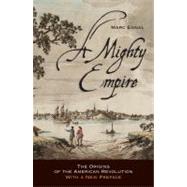
Note: Supplemental materials are not guaranteed with Rental or Used book purchases.
Purchase Benefits
What is included with this book?
| Maps and Figures | p. ix |
| Preface 2010 | p. xi |
| Preface to the First Edition | p. xxiii |
| Note on Definitions | p. xxv |
| Abbreviations Used in Notes | p. xxvii |
| Introduction | p. 1 |
| The Factions Emerge, 1690-1762 | p. 17 |
| Massachusetts to 1741: Three Parties Were Formed | p. 20 |
| Massachusetts, 1741-1762: Coalition Politics | p. 38 |
| New York: Traders and Warriors | p. 51 |
| Pennsylvania: Quaker Party Ascendancy | p. 68 |
| Virginia: Rise of the Northern Neckers | p. 87 |
| South Carolina: Factions Times Two | p. 102 |
| Revolutionary Politics, 1763-1770 | p. 123 |
| The Depression of the 1760s | p. 126 |
| Massachusetts: Patriot Alliance | p. 150 |
| New York: Reluctant Revolutionaries | p. 168 |
| Pennsylvania: Challenging the Quaker Party | p. 191 |
| Virginia: Conflict and Cooperation | p. 215 |
| South Carolina: Triumphant Patriots | p. 227 |
| The Quiet Years, 1771-1773 | p. 247 |
| The Quiet Years | p. 248 |
| The Expansionists Prevail, 1774-1776 | p. 271 |
| Northern Colonies: Antagonists High and Low | p. 275 |
| Southern Colonies: Maintaining Control | p. 302 |
| Beyond Independence | p. 328 |
| Appendix. Members of the Factions | p. 339 |
| Index | p. 371 |
| Table of Contents provided by Ingram. All Rights Reserved. |
The New copy of this book will include any supplemental materials advertised. Please check the title of the book to determine if it should include any access cards, study guides, lab manuals, CDs, etc.
The Used, Rental and eBook copies of this book are not guaranteed to include any supplemental materials. Typically, only the book itself is included. This is true even if the title states it includes any access cards, study guides, lab manuals, CDs, etc.